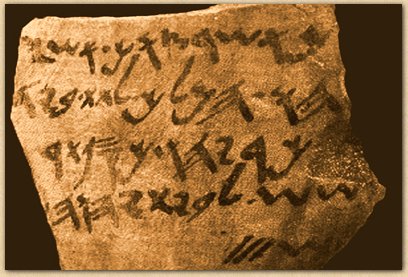[This became long. I really hope you will read it all, but if you are short on time, skip to the last two paragraphs. Ta.]

Dr. Claude Mariottini has a long post with a non-review of Mario Liverani’s Israel’s History and the History of Israel. (For those not following along, I say “non-review” since as part of Biblical Studies Writing Month Dr. Mariottini has written a thorough review to be published elsewhere.) In that post Dr. Mariottini takes issue with “minimalists,” those who argue that very little to known of the historical narratives in the Bible can be proved to be true, and turns the table, challenging them to prove the non-existence and historical irreality (my own word, according to the spell check) of the Bible.
Dr. Jim West (I am a doctor as well, just not a “real” doctor, as my grandmother will tell you) calls this an “impossible impossibility” and says that you cannot prove a negative. Duane Smith (who is not a doctor but has two masters and actually did a real job for a career) says the Game is a afoot! and has a humorous and accurate description of the problem of this academic pong match. He also has a postscript which demonstrates that you can prove a negative. Well, sort of.
The example from the article cited by Smith is:
1) If unicorns had existed, then there is evidence in the fossil record.
2) There is no evidence of unicorns in the fossil record.
3) Therefore, unicorns never existed.
The article then goes on to deal (but not substantially) with the reason why this inductive reasoning does not hold true. We can say the fossil record found to date shows no evidence of unicorns, but we know that fossilization was a fairly rare occurrence and we certainly do not have all of the fossils deposited at our disposal to examine. Thus, it is merely probable that unicorns never existed.
Think about it for just a moment. Although the ancients likely had discovered dinosaur fossils which led to many of the dragon and cyclops-type myths, it wasn’t until 1824 when William Buckland gave us the first scientific description of a dinosaur, the “Megalosaurus.” So, the record, as known and understood until 1824 told us nothing about dinosaurs. Does that mean they did not exist? Our ignorance does not constitute evidence of somethings non-existance.
Now Dr. West objects to Dr. Mariottini:
They demand proof of the historicity of the events narrated by the text.
But of course they do! This is how history is supposed to be done- and how it is done in every historical discipline except ours!!! The never ending quest for proof is simply the quest for evidence upon which faith can be based and hence a denial of the place and function of faith in a person’s relationship with God. My quibble with the maximalists isn’t because I think they are wrong historically (though they are)- it’s because I think they are wrong theologically.
(BTW, I now see a number of comments on Jim’s post dealing with what I am about to say, so I will be brief.) The problem with Jim’s comment is that all historical disciplines have to depend upon the sources available to them and none of it is with complete certainty. When you are dealing with ancient history, as many of the commenters pointed out, you are often left with nothing but texts (or hardly anything). We have very little non-textual physical remains from Sumer and Akkad or even Babylon for that matter. But there are good historians working with the texts they have to develop and relate histories of these peoples and nations.
Finally, (if you are still reading) here is my beef with minimalists. It is not that they deny that we can know anything about the history of early biblical times or that they deny that David existed, yada yada yada. (Which I believe arose from three yods or an ellipses being written. dot dot dot yod yod yod. Yiddish, yeah?) It is that they make their own histories! The problem isn’t a healthy dose of skepticism or conservative historicity it is that they put forth a load of rubbish as their own, better reconstruction of why the Pentateuch was written and what it was really about. Think of Mendehall and Gottwald’s so-called “internal revolt” model of how the “conquest” really occurred. Why is it that a reconstruction by scholars three thousands years removed from what may or may not have happened is more accurate than a written account, removed perhaps by hundreds of years yet based upon ancient traditions? Both may be wrong, but I find it hard to believe the detailed reconstructions that such scholars offer.
So my plea: I do not ask that you believe the biblical narrative or even that those folks ever existed, but please do not foist your own biblical fantastes* upon the academic world.
*No, that is not a typo.



13 thoughts on “Minimalists should not create their own histories.”
Thank you for your post. Many of the people who try to reconstruct the history of Israel have a fertile imagination because they recreate something completely new using only the biblical text as their starting point.
Your argument is to the point. I rather struggle with the problems posed by the biblical text than invent my own history of Israel. This is what Mario Liverani has done. I believe Jim is wrong in his view of Israel’s history but it is hard trying to convince him.
Claude Mariottini
To which I have responded, of course…
😉
http://drjimwest.wordpress.com/2008/01/31/maximalists-and-constructed-histories/
Ahh, the “problem of induction” and Wittgenstein. Of course, as I am sure you recall, the problem of induction (“unicorns? Where??” or “I have never seen a black swan, only white swans, thus all swans are white”) is that such statements imply the observation of the complete set. It is just this philosophical debate in the realm of science which led Karl Popper to develop his views of falsificationism in his work The Logic of Scientific Discovery.
It is his work that really put in place what we all learned in Intro Statistics–“you cannot accept the hypothesis, only ‘fail to reject’ it.”
(I wrote far more about him back in 2004 on my blog)
The question becomes at what point do you accept a source of data as being actually valid. The argument, as I see you presenting it here, is that texts somehow are “less valid” as data, when not accompanied by shards of pottery (or some other ancient trinkets.) Sort of ironic, isn’t it? We call the era before the written record as “prehistoric” because we only have archaeological data, but when we have a written record that involves religion, or miracles, or faith, we somehow prefer the “prehistoric” record to that of “historical” ones.
Ahh, well.
Okay, so my link to my previous writings for some reason didn’t work. The link from 2004 is: http://theprofessornotes.com/archives/20
Triple yods are used in Rabbinic literature to represent the Tetragrammaton. It wouldn’t have also been used to represent something so generically disrespectful as blah-blah-blah/yadda-yadda-yadda. I don’t think you’re right about that. But it’s a fun idea!
Kevin, you are right about some rabbinic texts and there are other variations on that as well (two and four). The Solger manuscript of the targumim uses three yodim for YHWH. But I doubt if the notation itself would have become in some way sacrosanct. Not that i am wedded to the idea, but as a fun theory I don’t think this evidence necessarily rules out a vulgar usage.
“Ahh, the “problem of induction” and Wittgenstein. Of course, as I am sure you recall, the problem of induction (”unicorns? Where??” or “I have never seen a black swan, only white swans, thus all swans are white”) is that such statements imply the observation of the complete set. It is just this philosophical debate in the realm of science which led Karl Popper to develop his views of falsificationism in his work The Logic of Scientific Discovery.”
Don’t you know that all that Wittgenstein, Kant, Descartes, Reid, and Sosa are all philosophers! They are influenced by Greek thought so we can dismiss them…sheesh! I think Jim West has written extensively on not confusing philosophy with theological issues. 😉
(This was all tongue in cheek of course)
Blake Reas